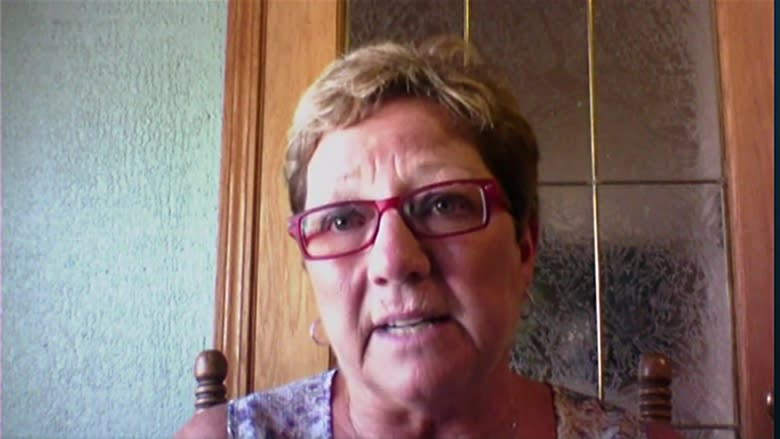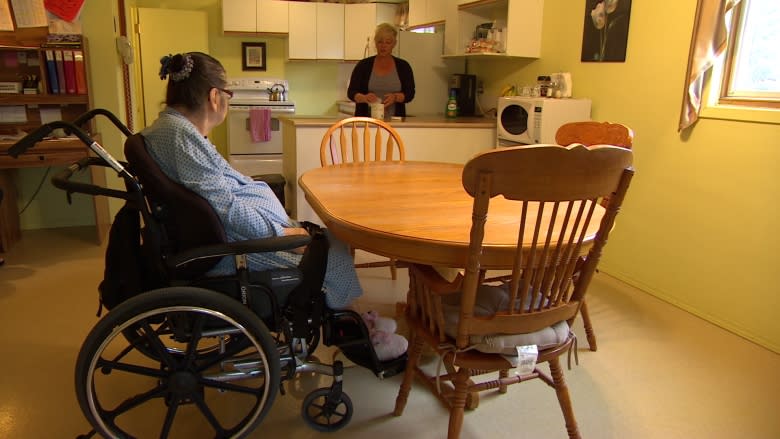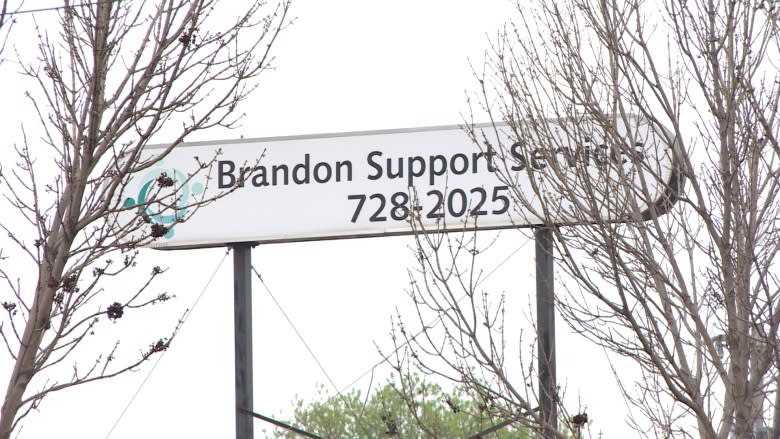Former government manager criticizes family services funding crunch
High staff turnover rates in agencies that care for adults with intellectual disabilities is harming the quality of care the agencies can provide, according to a former manager in the Manitoba department of family services.
"I do believe that it has become a funding crisis, and some of that is because historically, this is a sector that has been underfunded," said Debby Dandy, a former manager for the Manitoba department of family services. "We should have kept up better than we have, and it gets to this point and it requires a huge investment of dollars to correct that situation."
Dandy worked at the western Manitoba regional office of the department for 34 years and served as regional manager from 2010 to 2012.
She said low funding levels from the family services department left agencies without enough money to pay staff adequately, leading to high staff turnover.
Dandy said the province should provide pay equity with health care aides in nursing homes and education assistants in schools.
"It would cost millions and millions of dollars but that's because what needed to be done over the last 15 years wasn't done," she said. "They just don't have the political will or public support."
In January, the government increased its funding for wages at the agencies from $12.06 an hour to $12.50 an hour, with another increase to $13 planned for July.
Expect improvements, minister says
Family Services Minister Kerri Irvin-Ross said agencies can expect improvements.
"I think the action our government took last summer with the $6 million — that was a significant step forward. We're going to continue to make those investments," said Irvin-Ross.
Dandy, who is now executive director of the non-profit advocacy group Community Living Brandon, said relationships with staff are critically important for vulnerable people, so high staff turnover is difficult for clients with intellectual disabilities.
"For people who have specific care needs that they can't express verbally, you need a staff who understands those care needs just by knowing the person very well," she said.
Support workers in residential agencies could find themselves caring for people with mental health issues and aggression or medical requirements such as catheters, colostomy, tube feeding or insulin injections.
Dandy said it's been too easy for government to ignore people with intellectual disabilities.
"For politicians, they respond to the public voice. Individuals with intellectual disabilities don't have that public voice," Dandy said. "I think this has been a population that it has been easy to push to the back and we need to correct that."
Irvin-Ross said the government is looking at ways of creating efficiencies to improve services.
"One of the issues we need to talk about in the rural areas: amalgamation," Irvin-Ross said. "There are some agencies that have very few clients, and they're being run by a board. So we're talking to them about how can we bring them together to share resources and provide a better quality of service."
Switching from profit to non-profit like being 'black-balled'
Dandy has seen the funding crisis non-profit agencies have said they are facing from a number of vantage points: she has worked for government, for the non-profit sector, and for Brandon Support Services Ltd., the one for-profit agency serving clients with intellectual disabilities.
Dandy said making the switch wasn't easy.
She drew criticism from some in the non-profit sector after retiring from government three years ago and then going to work for Brandon Support Services Ltd., where she did staff training.
She said BSS was the only agency interested in hiring her, although she said she also approached some non-profit agencies about doing training for them.
"I'm black-balled," Dandy said, "There's a big, black cloud over my head," she said describing the attitude she felt from non-profit agencies after she went to work for BSS.
Non-profit agencies in western Manitoba have been critical that Brandon Support Services has seen its provincial funding rise substantially, from $1.6 million in 2006 to $9.7 million in 2014.
Barry Foster, president of BSS, attributed that increase to the growing need for services, and his company's clients requiring complex care.
He dismissed criticism his company got better funding due to hiring Dandy when she left government.
"That's just ludicrous and sour grapes. There's no preferential treatment whatsoever, just because Debby worked for us," Foster said.
Dandy said as regional manager in the family services department, she did review the budget of BSS, but she said the funding decisions were made by department officials in Winnipeg.
She said there was no rule preventing her from going to work for BSS after leaving her government job and she laments criticism she's heard from non-profit agencies about that.
"Personally, it hurts. I worked with those people for thirty-some years," she said. "If they want to carry that sword, so be it."
Dandy has her own criticism that people in the family services department in Winnipeg are making decisions that affect the lives of people in care agencies without understanding those people.
"If I had someone in the system, I would be worried," Dandy said, referring to the low wages and high staff turnover.




